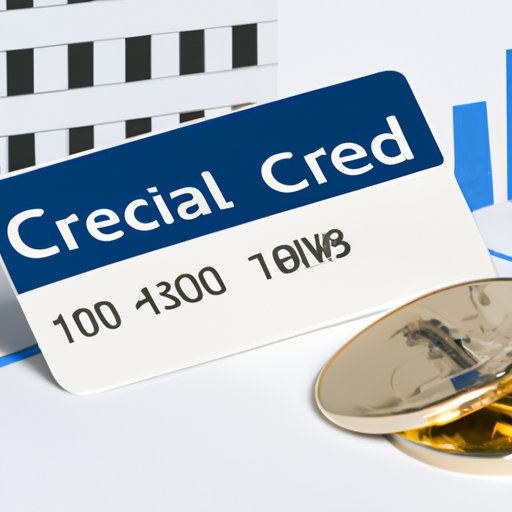
I. Introduction
Building business credit without using personal credit can be challenging but is key to sustaining and growing a successful business. This article is designed to guide small business owners on how to establish business credit from scratch, the benefits of having good business credit, and the best ways to manage it. Our target audience comprises entrepreneurs and small business owners who want to separate personal and business finances and establish their business credit reputation.
II. Create a Separate Legal Entity
Creating a separate legal entity is one of the first steps in establishing business credit. A legal entity is an organization or entity that has legal standing, and forming an LLC or a corporation can establish a separate legal entity for your business. It separates personal and business credit and limits personal liability in case of business obligations or debts. This structure can also help you gain credibility with potential lenders, suppliers, and customers.
III. Obtain an EIN
A business’s Employer Identification Number (EIN) is like a social security number for a business. It is essential to obtain an EIN to separate your business credit from personal credit. It is necessary when opening business bank accounts, filing taxes, and applying for certain business licenses.
To obtain an EIN, visit the IRS website, complete the online application form, and submit it. You can also apply using other methods such as fax or mail.
It is crucial to safeguard your EIN as it is a sensitive piece of information that can be used for identity theft or fraud. Only provide it to trusted vendors or lenders as part of the credit application process.
IV. Open Business Credit Accounts
Having business credit accounts helps build credit history and signal creditworthiness. Suppliers can report your payment history to commercial credit reporting agencies such as Dun & Bradstreet, Experian, or Equifax. This history will be part of your business credit report and considered by potential lenders or partners.
To open a vendor account, start by doing market research on the suppliers available and choosing ones that offer credit accounts. Always ensure that they report to commercial credit agencies and not personal credit bureaus to avoid commingling credit. Build good relationships with vendors by paying on time or early, staying below your credit limit, and communicating in case of payment delays.
V. Apply for a Business Credit Card
A business credit card can be another valuable tool for building credit history. Choose a credit card that reports payment history to commercial credit agencies and not personal credit bureaus to avoid the risk of commingling credit.
When selecting a card, compare features such as annual fees, credit limit, interest rates, cashback rewards, or customer support. Be sure to use the card responsibly by making timely payments, avoiding late fees, staying below the credit limit, and reviewing statements for any errors or discrepancies.
VI. Work with a Business Lender
Establishing credit history through small business loans or credit lines can be an alternative to supplement vendor accounts and credit cards. Choose a lender that reports to business credit bureaus to ensure that the credit history contributes to your business credit report.
When applying for a business loan, research lenders, prepare a solid business plan, and ensure your credit score meets the lender’s criteria. Take steps to manage the loan effectively, such as setting clear repayment schedules, budgeting for loan payments, keeping accurate records, and communicating in case of difficulty meeting payments.
VII. Pay Bills on Time
Timely payments are vital for establishing good credit history. Late payments can have negative effects on your credit score, reduce your creditworthiness, and trigger interest charges, late fees, or legal action.
To manage cash flow and avoid late payments, maintain accurate cash flow projections, negotiate payment terms with vendors, prioritize payments, and track payment due dates systematically. In case of difficulties meeting payments, communicate with your vendors or lenders as soon as possible to explore payment plans or alternatives.
VIII. Monitor Credit Reports
Monitoring your business credit report regularly is crucial as it helps you identify errors or inaccuracies and take corrective measures. Commercial credit reporting agencies such as Dun & Bradstreet, Experian, or Equifax provide free business credit reports annually or for a fee.
To check your business credit report, register on the credit bureau’s website, or make the request by phone or email. Look out for any errors or inaccuracies, such as unauthorized inquiries, false information, or outdated data. Dispute any errors by providing evidence or documentation of the correct information.
IX. Conclusion
Building business credit without using personal credit is critical for small businesses to grow and sustain success. Creating a separate legal entity, obtaining an EIN, and opening business credit accounts and credit cards are strategic steps in building credit history. Working with a business lender, paying bills on time, and monitoring credit reports help maintain good creditworthiness. By implementing these strategies and being diligent, you can establish and grow your business credit reputation, access better financing options, and build strong business relationships.
Additional Resources:
- U.S Small Business Administration (SBA): Building Business Credit
- Dun & Bradstreet: Corporate Credit Guide
- Experian: The Ultimate Guide to Building Business Credit
- Equifax:





